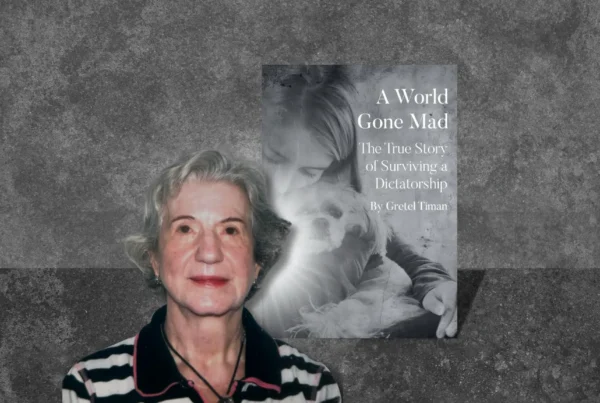In Original Politics: Making America Sacred Again (SelectBooks), educator, ecopsychologist and political philosopher Glenn Aparicio Parry makes a case that the founding vision of the United States was inspired by Native American cultures. Further, Parry traces the influence of Native America on nation-shaping historic forces including the 19th-century women’s and abolitionist movements and modern ecological movements.
Native America has inspired what Parry sees as the sacred purpose of the nation: bringing all the world’s peoples together on one soil in a harmonious cultural mosaic of unity in diversity — a diversity that includes the natural world.
We recently had the opportunity to chat with Parry about his book and worldview.
Q: In your latest work, Original Politics, your subtitle is “Making America Sacred Again.” Tell us why America has lost its “sacred” status in your eyes.
A: “Making America Sacred Again” refers both to the nation and the land. Before there was a political nation, the continent (then called Turtle Island) was considered sacred in the sense of the land being a place of wholeness and blessing. To make sacred is to invoke the whole. There was also a sense of sacredness in original Native American politics. Indigenous (original) politics included the natural world. It is important, now more than ever, for our politics to include nature. Instead, our politics is human-centered. This is the root of all kinds of ecological problems, including climate change. Wise politicians and states persons should align their actions with what is already unfolding in nature. That is how we make America sacred again.
Q: What are the three key components of making America sacred again?
A: Respect for land; respect for the light, air, water and earth that make up all life; and respect for liberty and equality.
Q: How did Native America influence the founding of the United States?
A: I contend that Native America was the primary influence upon the founding principles of the United States. The very idea to unite the colonies was suggested by Chief Canassatego of the Onondaga nation of the Iroquois (Haudenosaunee) Confederacy. Large parts of the Iroquois Great Law of Peace were directly appropriated by Ben Franklin when designing the Articles of Confederation.
The U.S. Constitution similarly enshrined Native American principles of natural rights of liberty and equality. While the founders only adopted Native principles to the extent they understood them or wanted to apply them (initially favoring only white, male property owners), the seed of Native influence has blossomed over time and the United States has become increasingly inclusive.
Q: Why are people today not aware of the contributions of Native America? Have they simply forgotten or misunderstood their contributions, or did something else occur?
A: When the United States was initially formed as a country, the whole world understood that its creation was a hybrid of European and Native American values. For the first fifty years of the nation, the U.S. government worked nation to nation with tribal governments, often forming military alliances against potential foreign invaders.
But ever since the presidency of Andrew Jackson, the perception of Native Americans changed. A common occurrence in wartime is that the enemy is dehumanized. With the Indian Removal Act of 1830, Jackson initiated a wholesale genocide and relocation of the Creek, Seminole, Chickasaw, Choctaw and Cherokee tribes in order to clear land for white settlers. America forgot the contribution Native Americans made to our founding values, but fortunately, in the last twenty-five years, the truth has begun to resurface.
Q: Tell us about your research and the writing process in this book. What was the most difficult element for you?
A: Great question. My creative process works like this. I pray for what the Creator wants to use me for and then I accept the assignment, however daunting it is. Writing the book Original Politics required me to reinvent myself as a historian, but not only as a historian. It was important to write a non-linear history that directly applied the living lessons of history to what is happening now, and also to what lies in our future.
As William Faulkner famously said, “The past is not dead. In fact, it isn’t even past.” All the aspirations of our ancestors, as well as the broken treaties, are buried in this sacred ground. My task was to reveal both the highest principles of America and its shadow. The latter task was oddly made easier by the Trump administration.
Q: What’s next for you in terms of books, projects and your work in general?
A: My first book was called Original Thinking: A Radical ReVisioning of Time, Humanity, and Nature (North Atlantic, 2015). Original Politics: Making America Sacred Again (SelectBooks, 2020) is the second in a three-part series. The third book in the trilogy is called Original Love. I am also planning to expand the work of the grass-roots think tank Circle for Original Thinking, whose mission is to seek out the deep origins of contemporary thought in order to remember and restore heart-centered wisdom to humanity and all our relations on Earth. And I am excited to announce that The Circle for Original Thinking will be debuting a weekly podcast of the same name this summer in association with Ecology Prime and SelectBooks.
Original Politics: Making America Sacred Again (SelectBooks) is now available for purchase. You can also read BookTrib’s review here, and visit Glenn Aparicio Parry’s BookTrib author profile page.
https://booktrib.com/wp-content/uploads/2020/06/Glenn-Aparicio-Parry300-1.jpg
About Glenn Aparicio Parry:
Glenn Aparicio Parry, Ph.D., also given the name Kizhe Naabe (Ojibwe for “Kind-Hearted Man”), is a Nautilus award-winning author, educator, speaker entrepreneur and visionary whose lifelong passion is to reform thinking and education into a coherent, cohesive whole. The founder and past president of the SEED Institute, Parry is currently the president of the think tank Circle for Original Thinking. He has appeared in several documentary films, including Journey to Turtle Island by Spanish filmmaker Miryam Servet, and SEEDing Change: A Retrospective of the Language of Spirit Dialogues, directed by Joyce Anastasia and produced by the Foundation for Global Humanity. An avid outdoorsman, he now makes his home in the foothills of the Sandia Mountains in Albuquerque, NM, with his wife Tomoko, dog Sunrise and cat Haru.





